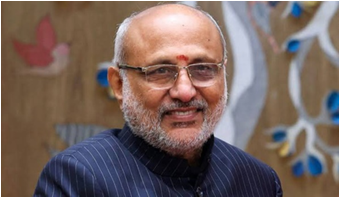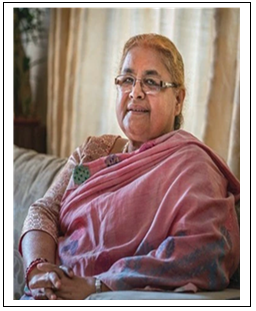14th International Government Communication Forum
Context: Recently, the 14th International Government Communication Forum (IGCF 2025) was conducted in Sharjah, UAE.
About the 14th IGCF
• The event was organised by the Sharjah Government Media Bureau and held at Expo Centre Sharjah from 9–11 September 2025.
• The theme of IGCF 2025 is “Communication for Quality of Life.”
• Discussions addressed a wide range of global priorities, including food security, public health, education, environmental sustainability, and the green economy.
• The forum features keynotes, panel discussions, workshops, and interactive platforms aimed at shaping policies that enhance the quality of life.
• The forum concluded with the Sharjah Government Communication Award, recognising excellence and innovation.
International Government Communication Forum (IGCF)
• IGCF was first launched in 2012 by the Sharjah Government Media Bureau and has been organised annually since then.
• IGCF is the region’s first-of-its-kind platform bringing together global government communication experts to explore best practices in the field.
Fast Track Immigration – Trusted Traveller Programme (FTI-TTP)
Context: Recently, the Union Home minister inaugurated the Fast Track Immigration – Trusted Traveller Programme (FTI-TTP) at five more airports to increase the convenience of travellers.
Fast Track Immigration – Trusted Traveller Programme (FTI-TTP)
• FTI-TTP provides seamless and accelerated the immigration processing for pre-verified Indian nationals and Overseas Citizen of India (OCI) cardholders allowing them complete the process in about 30 seconds without long queues.
• It facilitates faster, smoother and more secure international mobility using biometric verification at e-Gates.
• It was first launched in 2024 at Delhi airport, later expanded to major cities like Mumbai, Chennai, Kolkata, Bengaluru, Kochi, and Ahmedabad, and now extended to five more airports, including Lucknow, Thiruvananthapuram, Trichy, Kozhikode, and Amritsar, making it operational at 13 airports.
• The programme enhances both traveller convenience and national security by using biometric verification at e-Gates for entry and exit.
• The FTI-TTP will eventually be launched at 21 major airports in the country.
Functioning of FTI-TTP
• The FTI-TTP has been implemented through an online portal.
• Applicants must register online by submitting details and documents on the FTI-TTP portal.
• Once registered, travellers simply scan their boarding pass and passport at e-Gates, where biometric verification grants instant immigration clearance.

• So far, around 3 lakh people have registered with 2.65 lakh already using the facility.
• The government aims to integrate this system with upcoming airports like Navi Mumbai and Jewar to benefit both Indian citizens and OCI cardholders.
Indian Navy Commissions INS Aravali at Gurugram
Context: Recently, the Indian Navy commissioned its latest Naval Base, INS Aravali, at Gurugram, marking a major boost to its information and communication infrastructure.
About INS Aravali
• INS Aravali, the Indian Navy’s newest naval base, was commissioned at Gurugram on 12 September 2025 in the presence of Chief of the Naval Staff.
- A naval base is a military facility where ships dock, are maintained, and restocked, and where naval personnel and assets are supported and trained.
• Named after the steadfast Aravali Range, the base will play a vital role in supporting command, control, and Maritime Domain Awareness (MDA) operations.
• It is designed to provide strong administrative and logistical support, ensuring smooth and efficient naval operations.
• The base will act as a hub of technology and collaboration, linking platforms and partners across oceans.
• Its motto, “Maritime Security through Collaboration,” reflects the Navy’s focus on teamwork and partnership.
• INS Aravali embodies the vision of MAHASAGAR (Mutual and Holistic Advancement for Security and Growth Across Regions), strengthening India’s position as a trusted security partner in the Indian Ocean Region.
15th Vice President of India
Context: Recently, Shri C.P. Radhakrishnan was sworn in as the 15th Vice President of India and Chairman of Rajya Sabha.
Vice-President
• The Vice-President occupies the second-highest constitutional office in India and serves as the ex-officio Chairman of the Rajya Sabha.
• He is elected through an indirect election, not directly by the people.
• The election is conducted by an electoral college consisting of all the members of both Houses of Parliament.
• The Vice-President holds office for a term of five years from the date of assuming charge.
• He can resign at any time by submitting his resignation letter to the President.
C.P. Radhakrishnan
• Shri C.P. Radhakrishnan was born on 4th May 1957 in Tiruppur, Tamil Nadu, and went on to complete his Bachelor’s degree in Business Administration.
• In 1998, he was elected to the Lok Sabha from Coimbatore, and his popularity saw him re-elected in 1999.
• In 2004, he addressed the UN General Assembly as part of India’s Parliamentary Delegation and joined the first Parliamentary Delegation to Taiwan.
• In 2016, he took over as Chairman of the Coir Board in Kochi

• Later, from 2020 to 2022, he served as the All India In-Charge of the BJP for Kerala, expanding his organisational responsibilities.
• In 2023, he was appointed as the Governor of Jharkhand and also held additional charge as the Governor of Telangana and the Lieutenant Governor of Puducherry.
• Prior to his election as the Vice President of India, Shri Radhakrishnan served as the Governor of Maharashtra for little more than one year.
Nepal’s first woman Prime Minister
Context: Recently, the former Chief Justice Sushila Karki became Nepal’s first woman Prime Minister.
More on the News
• Nepal President Ram Chandra Poudel appointed former Chief Justice Sushila Karki as the country’s new Prime Minister leading the country’s transitional government.
• Nepal’s President dissolved the Parliament on September 12, 2025, as days of political turmoil showed signs of abating and also announced fresh elections on March 5, 2026.
• Karki’s selection came through a unique public voting process led by Nepal’s Gen Z protesters on Discord, where she emerged as the most acceptable figure for both youth leaders and traditional political forces seeking stability.
• Karki aims to restore order, hold elections, and ensure Nepal’s development.
Sushila Karki
• She was born on 7th June 1952 in Shankarpur, Biratnagar, she completed her early schooling in Biratnagar.
• She earned a master’s degree from Banaras Hindu University in India, followed by a Bachelor of Laws from Tribhuvan University in 1978.

• Beginning her legal career in 1979, she soon emerged as a respected lawyer, serving as President of the Koshi Zonal Bar Association and the Biratnagar Appellate Bar.
• Her judicial journey began when she was appointed a Supreme Court justice in 2009, where she earned a reputation for independence and courage.
• In July 2016, she was elevated as Nepal’s first woman Chief Justice, where her bench delivered landmark rulings in high-profile corruption cases.
• Despite being nominated under the Nepali Congress quota, colleagues stress she never succumbed to political influence and always upheld judicial integrity.
• Her tenure as Chief Justice ended in June 2017.

